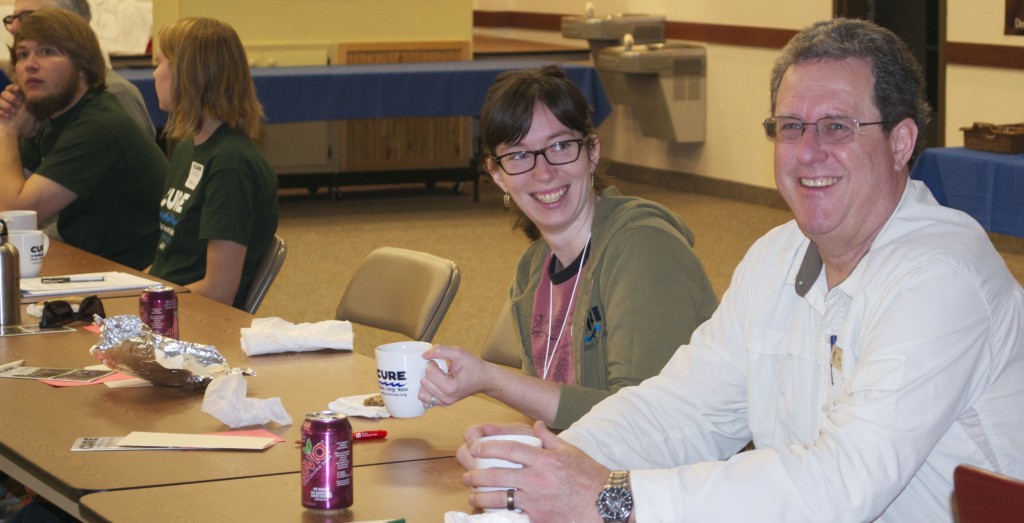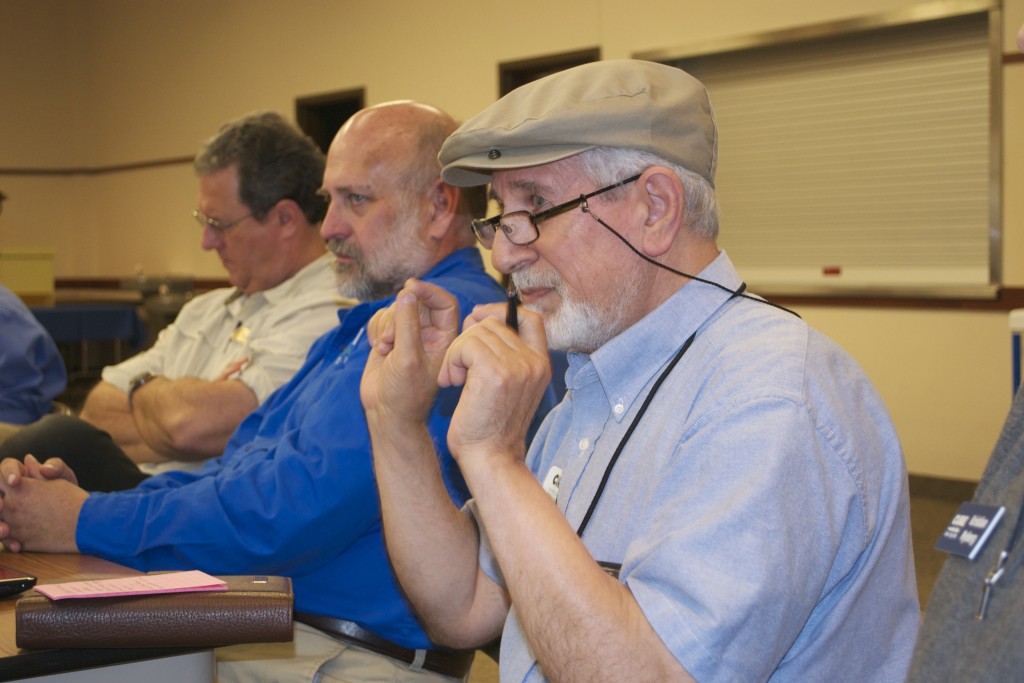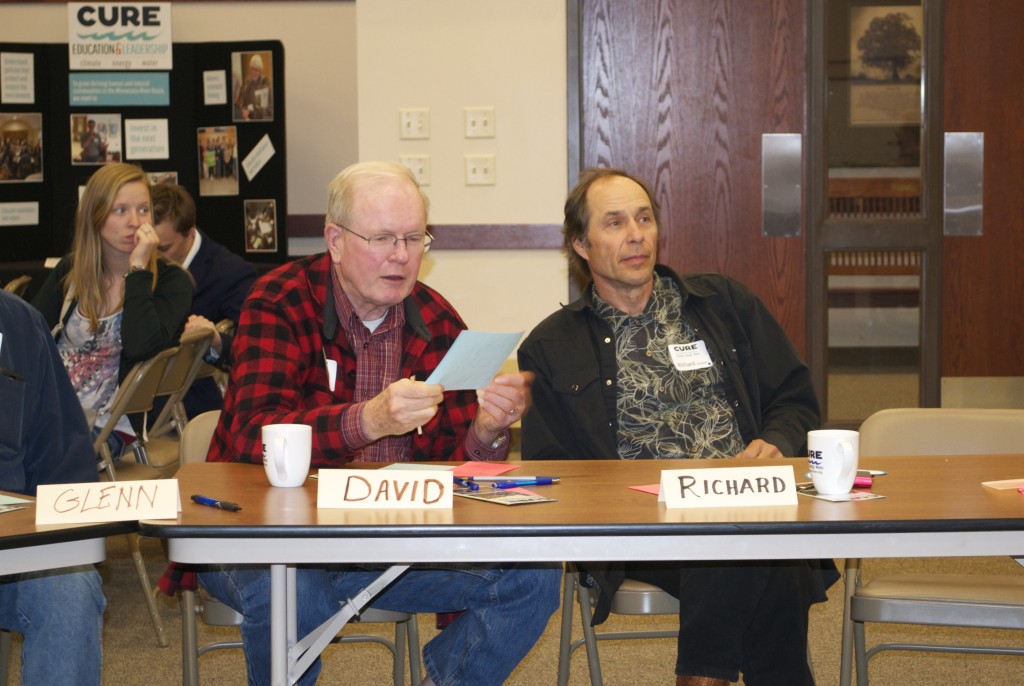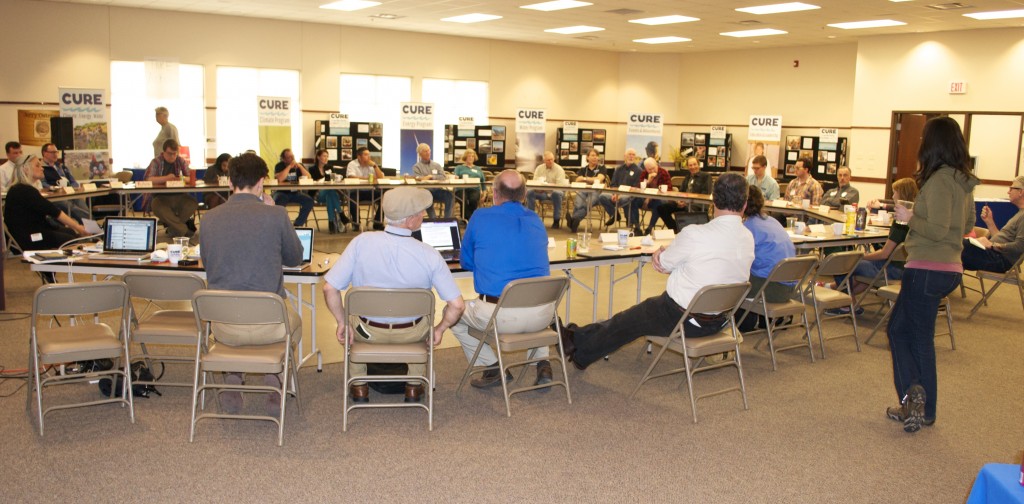To kick off CURE’s Annual Meeting Day of Engagement, more than 50 people discussed and debated the issues surrounding Growing Clean Water: Connecting Agriculture and Stewardship. This was the second convening of CURE’s Minnesota Rural Progressive Roundtable Series.
To better tackle the theme, the roundtable was organized into three premises. The premises were designed to foster debate among participants: the facilitator asked the group if each premise was mostly true, mostly false, or somewhere in between. The premises were as follows:
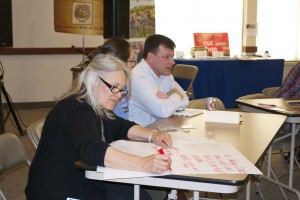 Land and water resources around the world have been degraded by industrial agricultural production practices, and the systems (actors and actions) that have led to this current reality do not possess the mechanisms by which to reduce, halt, or reverse the degradation.
Land and water resources around the world have been degraded by industrial agricultural production practices, and the systems (actors and actions) that have led to this current reality do not possess the mechanisms by which to reduce, halt, or reverse the degradation.
- The problem of depleted soils and degraded water quality in the Minnesota and Mississippi River Basins may be impossible to fix due to its systemic complexity.
- The current world population is 7.3 billion. Leading voices in American agriculture state that the American farmer will be responsible for feeding 9.6 billion people by 2050: “American farmers are responsible for feeding the world.” Those voices also claim that the American industrial agricultural complex is the only system with the efficiencies to produce the food that will be needed.
As we discussed these premises for more than two hours, some consensus arose:
- Premise One was largely true. In the Minnesota River Basin, at least, the primary source of our land and water degradation appears to be the dominance of industrial agriculture on our landscape. The participants noted that those who most benefit from the agricultural system have no incentive to solve the problem of degradation. Thus, while these ecological problems stem from decisions made on individual farms, these individual decisions are nested in a much larger, complex system.
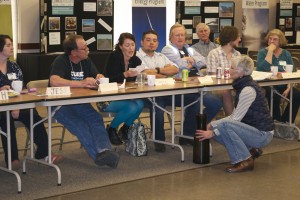 Premise Two was mostly true. Because local land and water degradation is tied up in the global commodity-production system, we are facing a very complex problem. Such situations are sometimes referred to as “wicked problems.” Therefore, we will not be able to rely on conventional problem-solving strategies; instead we will have to take a new approach that encourages integrative thinking.
Premise Two was mostly true. Because local land and water degradation is tied up in the global commodity-production system, we are facing a very complex problem. Such situations are sometimes referred to as “wicked problems.” Therefore, we will not be able to rely on conventional problem-solving strategies; instead we will have to take a new approach that encourages integrative thinking.
- Premise Three was largely false. Participants challenged the assumption that industrial commodity crop agriculture currently increase global or local access to food; moreover, many doubted that it could in the future. Instead, the group discussed alternative agricultural practices that seem to have more promise.
Ultimately, the roundtable concluded that ongoing degradation locally and globally constitutes a state of emergency and that we must ramp up society’s willingness to recognize and address the problem.
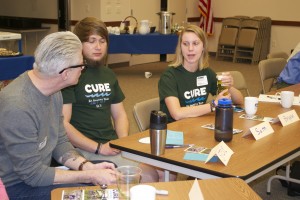 Throughout the conversation there was clear consciousness that while degradation results from individual farmers’ land management decisions, farmers are not the root cause of the problem. Instead, farmers make decisions within an industrial agricultural system that fails to account for the real environmental and societal costs of commodity production. Meanwhile, farmers run the gamut from very small producers to giant operators that control tens of thousands of acres and from those employing the most sustainable practices to the most industrial and chemical-intensive growers. Most farmers fall somewhere in between.
Throughout the conversation there was clear consciousness that while degradation results from individual farmers’ land management decisions, farmers are not the root cause of the problem. Instead, farmers make decisions within an industrial agricultural system that fails to account for the real environmental and societal costs of commodity production. Meanwhile, farmers run the gamut from very small producers to giant operators that control tens of thousands of acres and from those employing the most sustainable practices to the most industrial and chemical-intensive growers. Most farmers fall somewhere in between.
Looking towards the future, the roundtable focused on creating a narrative about farming that counters the narrative of the industrial agricultural complex. Participants agreed that we must begin writing a new honest story based on the values inherent in creating a sustainable food system. We welcome you to join us.
We tweeted during the Roundtable, check out the #GrowingCleanWater conversation by clicking here.

